Russians didn’t start caring about their health, though started to think of their future for the first time
Residents of Tatarstan are tired of talks about the coronavirus but emptied shelves with anti-stress medications and purchased sports goods
During the pandemic, though Russians began to purchase dietary supplements and sports goods (especially in Tatarstan), sadly, they didn’t start to care about their health, participants in Volga expert club concluded. They think that there aren’t necessary conditions and motivation for a mass transition to a healthy lifestyle — quality medicine and infrastructure. Russian authorities, in fact, destroyed the health care system by introducing “market mechanisms”, while the population gradually stopped planning their future even three months ahead. Having listened to the specialists, Realnoe Vremya newspaper learnt why Tatarstan once emptied shelves with anti-stress vitamins are tired of information about the coronavirus and why there is no sense here even if urban citizens start to ride bicycles.
Russians purchased six times more sports goods in May due to coronavirus
At the next meeting of Volga club, experts discussed how the coronavirus pandemic changed people’s attitude to health and if did at all. Also, they debated if these changes, if they are mass, are long-term and turn into a trend for a healthy lifestyle. In the short-term, it might seem the answer might be affirmative: during the first weeks of the self-isolation regime, online stores claimed that there were sold out sports goods to do sport at home.
So in May, Russians purchased six times more sports products compared to the analogous period last year. Sales of dietary supplements in pharmacies rose by 30% (we will note anyway in brackets that the market of dietary supplements in the Russian Federation isn’t regulated, dietary supplements themselves aren’t medicines, while the positive impact of some dietary supplements on human health is often doubted by specialists).
“The population is interested in healthy eating, which means about accessible sport,” an introduction to the discussion read so, not all speakers agreed with the point.
60% of Russians must have coronavirus anti-bodies for herd immunity, at the moment the number is 14%
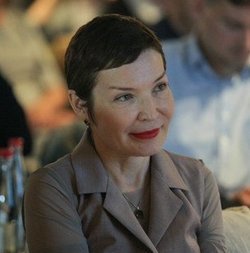
“There is no treatment, Arbidol doesn’t help,” the medic concluded. “The situation across Russia is very unstable yet, we have reached the plateau, but there isn’t a serious reduction in the number of cases.” At least 60% of the population must have coronavirus anti-bodies for herd immunity. But the number in Russia is just 14%, 17% in London, almost 20% in New York where the biggest number has recovered as well as in Sweden with not so strict quarantine measures. Moreover, there are high risks of secondary infection, especially in halls of residence of seasonal workers and old people’s homes (this has recently been confirmed in South Korea, the USA and France).
Introduction of market instruments to health care system was mistaken
Moreover, 80% of COVID cases are asymptomatic, hence the long necessity of meeting sanitary and distancing measures in society. It will be necessary to keep social security as much as possible — to put on masks and keep a distance (it is noteworthy that they didn’t talk about the epidemiological necessity to wear gloves — which is discussed today).
Guzel Ulumbekova thinks that if the state doesn’t support the economy after the epidemic, Russia’s GDP will fall by 20% this year already. To make sure this fall is at least 10%, it will be necessary to invest 11 trillion rubles in purchasing power. The Russian government has planned 6 trillion so far (3 trillion of them have been invested). But even with 11 trillion rubles, the support will turn out 2-3 times lower than in western countries: “The population’s real incomes will fall by 10%, the number of the poor in Russia will increase to 35 million people,” the expert forecasts.
Ulembekova switched from the numbers to severe criticism of Vladimir Putin’s team’s policy on health care. In a word, it was in ruins, when the coronavirus hit. The doctor of medical sciences thinks the authorities’ idea to introduce market instruments (and not only in Russia) to the health care system mistaken too. While, as the epidemic showed, health care is as important for the country’s security as the military and industrial complex. We will note that Bill Gates (who now turned into a monster thanks to COVID dissidents) talked about the same problem in one of Netflix documentaries last spring, a year before the epidemic catastrophe. According to him, the financing for the military and industrial complex in the USA is incomparably greater than the money given to the American health care system.
“We didn’t finance health care enough, twice less than Western Europe did”
“All countries have faced a deficit of staff, beds, means of individual protection,” Ulumbekova claimed. “It was tougher for us. We didn’t finance the health care system enough, twice less than Western Europe did. We used ineffective market mechanisms, carried out optimisation, destroyed rural health care. Doctors’ average fixed salary is 20-25,000 rubles besides Moscow. Nurses earn 10-15,000 rubles.”
An absence of centralised management of the sector aggravated the situation. But there were anyway found reserves to fight the plague — both in Moscow and Tatarstan, even in the federal Ministry of Health Care, though it didn’t have such power in the regions (all its orders were recommendations). And this influenced a higher mortality rate of our health care workers: by different estimates, from 190 to 256 health care workers have died, while this number in Italy has been 163, 130 in the USA.
What does it take to restore the effective health care system? The medic thinks, first of all, it is necessary:
- to restore the centralised vertical of power under the Russian Ministry of Health Care that all security services obey, as it is already a “semi-military service”;
- to increase the financing of health care from 3,8 to 6,5 trillion rubles a year, and to add a trillion rubles every time;
- a third of this money must be spent to raise salaries, a third — on free medication, and a third — to increase the quality of medicine;
- to restore public financing of the health care system.
“The times are different. And the cost of our health care is the cost of your health care,” she concluded.
Russians didn’t start caring about their health in quarantine — All-Russian Public Opinion Research Centre
Kirill Rodin, head of government relations of the All-Russian Public Opinion Research Centre, said how the Russian population experienced the beginning of the epidemic and why it isn’t concerned so much — it is tired. Today many people consider the state of the close circle (family, acquaintances) better than what is going on in the periphery — in the country, abroad where numbers stay subjectively scary. The Russian population successfully went through the period when there could be panic.
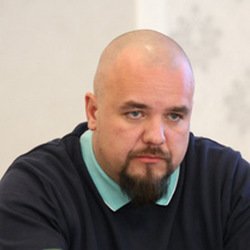
A fourth of Russians today frankly oppose a healthy lifestyle and have bad habits. People who just declare are against them — over 30% who say they are ready to do sport but don’t do this in fact. Despite this, almost 40% of Russians consider they are healthy, 50% think they feel fine, 10% — bad.
But the quarantine didn’t make Russians do more sport (obviously at home). 27% did sport, 27% still do it — moreover, Putin set a goal of increasing this number to 55%. Tobacco consumption hasn’t been reducing much for a couple of years already because the negative motivation of 2015 stopped working (a set of measures that brought to a rise in cigarette price: a third of Russians keep smoking). There was a slight reduction in quarantine, but sociologists forecast that after this the share of smokers will go back to the previous numbers. The number of people who consume alcohol reduced from 46% to 30%, in the last years the tendency has disappeared. Neither are there great changes in the amount of Russians who care about what they eat: they total no more than 25%.
“Has the diet changed as a consequence of the COVID epidemic? Nothing has changed among the most. There have appeared a few people who have become to eat less healthy food, tastier and more harmful compensating negative emotions, cakes, ice cream,” the sociologist explained. “However, there has been an opportunity to eat more regularly and in small portions. At the moment I will remain conservative in a healthy lifestyle. But there must be changes not out of fear or because of the regulation, values systematically must change for this. Most Russians, moreover, can’t afford ‘entertainment’ linked with a healthy lifestyle.”
“If you were deceived by life, don’t feel dismal, don’t get mad”: Tatarstan residents are tired of coronavirus
Ley Fazleyeva, Tatarstan vice premier in social affairs, noted that in any case the attitude to a healthy lifestyle in her circle had changed, though a fear did it, not some positive motivation. Moreover, she said that the literacy of the Tatarstan population was polar nowadays: people either very smartly consider a healthy lifestyle, how it will influence their existence in the situation with the coronavirus or not. She also said that the interest in dietary supplements, especially vitamins had really increased in Tatarstan pharmacies. Many residents of Tatarstan began to look for answers to their questions about health, but then...

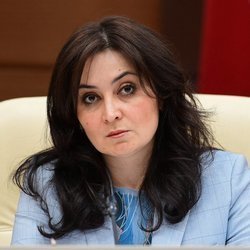
Why cities should start riding a bicycle — right now
Maksim Zhurilo, the founder of I Love Supersport and a co-founder of Ironstar (for instance, he organises marathons, this year, he said, the marathon in Kazan was cancelled and postponed until next year for the obvious reasons), thinks that the state and cities must play a role in changing motivation. In particularly they can engage most Russians into a healthy lifestyle, bicycle rides by changing the environment and surrounding area “like in the West”. And he put an example that the amount of bicycle rides in Switzerland in March rose by 75%, by 51% in Philadelphia, by 67% in New York.
Why? During the epidemic, people aren’t ready to return to public transport and chose another way to move. The government in Italy decided to compensate citizens of big cities 60% of costs (no more than €500) for bicycles. Milan published all its policy on remodification of urban transport from cars to bicycles in public domain.
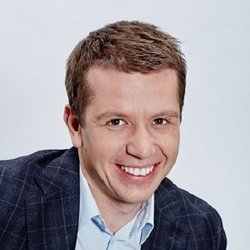
More stress — people buy up dietary supplements
Guzel Zakirova, a physiologist, dietician, biochemist, laboratory diagnostic specialist who actively engaging the population in healthy eating agreed with him too. But she sadly noted that people (precisely Tatarstan residents) are divided into two camps. The first group who care about themselves became to take their health more seriously in quarantine as well as the health of their relatives, especially old parents. The second group didn’t care about their health and don’t do it. As for demand for supplements, she paid attention to the fact that their popularity rose not because a conscious decision of Russians or Tatarstan residents to become healthier and eat better but because of... stress.
“The quarantine, a cramped space, many had to talk with the relatives they didn’t use to previously. The load on people increased. And there was higher demand for dietary supplements, and demand for anti-stress supplements and vitamins accounted for a big share, shelves with them were simply emptied. People don’t know how to live, how to fight,” Zakirova explained.
At the same time, she added that after the quarantine and epidemic, there will be an upsurge of the number of people with chronic diseases, which even have nothing to do with the coronavirus: cardiovascular, digestive tract, skin diseases that are closely linked with the nervous system — rashes, hormonal disorders, especially this will affect women, unfortunately. There will be more panic attacks too. Not even a sedentary lifestyle but an absence of a regime of the awake time, work and sleep is the main enemy of health in the self-isolation regime, people began to allow themselves and their children to go to sleep later. While sleep is the cheapest way to increase their adaptive reserves to fight the same coronavirus.
“There is a tomograph like a gate in the field!” — why Medicine national project failed
Aleksey Kurtov, president of the Russian Association of Political Consultants, put the supporters of a healthy lifestyle down to earth. He agreed only with Guzel Ulumbekova’s point about Russian medicine. State policy on many areas is poorly formulated in the country, he believes: there are preferences for state corporations, while the latter, on the contrary, have be in a competitive environment.
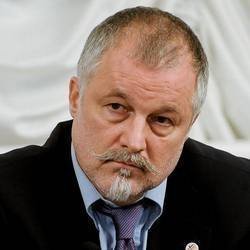
“I understand why the youth in Tatarstan purchase sports goods — they believe they are cared about!”
The political expert thinks that it is possible to talk about health and such a phenomenon as a healthy lifestyle, moreover, to make one switch to a healthy lifestyle, when the country creates an environment, give a person to understand it won’t leave him alone, give him a chance to survive. It is when a person starts to think about tomorrow, and there is a necessity to save their health:
“I won’t surprise if consumption of sports goods like in Tatarstan hasn’t increased in less developed regions. I understand why the youth in Tatarstan purchase sports goods — they believe they are cared about! In places where people are abandoned, they don’t care about a healthy lifestyle, they have to survive. What did the coronavirus give us? The most population has probably thought for the first time what would happen to them in three months. But due to a lot of restrictions, people began to plan the future three months later. But talking about a healthy lifestyle like Maksim, we talk about not all the Russian population but five cities where there is some infrastructure.”
Guzel Ulumbekova agreed with him. To start with, it is necessary to cover the population’s basic costs: first of all, free quality health care, and only then to start talks about a healthy lifestyle.